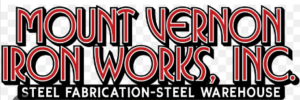Guardian sues son of Mount Vernon industrialist for $4M
The court-appointed guardian of a Mount Vernon industrialist has sued the man’s son for $4 million claiming that he improperly seized control of his father’s assets.
Anne Penachio, guardian of Joseph N. Lividini Sr., accused Peter Lividini of fraud in a complaint filed Sept. 14 in Westchester Supreme Court.

“Peter Lividini intentionally and without authority assumed and continues to assume or exercise control over the property belonging to plaintiff,” the complaint states.
Peter Lividini claimed it was always understood that he would become the owner of the family businesses, according to a lawsuit he filed on June 6 against Penachio and his father.
The dispute concerns Mount Vernon Iron Works Inc., a metal fabricating company, and Vernon Industries Inc., the former owner of the iron works property at 130 Miller Place, Mount Vernon.
Joseph Sr., of Mamaroneck, owns Vernon Industries and 80% of Mount Vernon Iron Works. Peter owns 20% of the iron works. Peter’s brothers, Anthony and Joseph Jr., have no interests in the businesses.
The iron works has been in the family for three generations and is in the process of winding down. Scrap metal was sold for about $1.2 million, the property was sold for $1.35 million, and about $234,000 in equipment and inventory remain.
Joseph Sr. also has rental income from a Larchmont condo and other personal assets.
Last year, Peter obtained a power of attorney from his father, according to court records, and he formed PL1 of NY Inc. and PL2 of NY Inc.
Penachio alleges that business certificates for Peter’s companies fraudulently indicate that they operate as Vernon Industries and Mount Vernon Ironworks.
She claims that Peter has diverted the proceeds from selling the property and scrap metal and from other assets.
Peter claimed, in his lawsuit against Penachio and his father, that for decades he ran day-to-day operations with his father’s knowledge and consent.
His salary has been the same for 20 years, with no bonuses or retirement benefits. Instead of receiving adequate compensation, he says, he was promised that both companies would be his and he would take care of his father.
He also invested personal money in the iron works and paid off state tax liens, according to his lawsuit, and his father participated in selling the property and scrap metal and fully understood the nature of the transactions.
He acknowledged that stock certificates show his father owns 80% of the iron works and all of the company that owned the property.
“Notwithstanding the companies’ stock certificates,” he declared, he “should be deemed the 100% owner of the companies,” and he is “entitled to 100% of the net proceeds from the sales.”
Peter accused his father of breach of contract, for failing to adequately compensate him for running the companies and failing to transfer his shares to him.
Westchester Supreme Court Justice Janet C. Malone, who appointed Penachio, noted in a July 18 ruling that once a guardian is appointed for an incapacitated person, litigation against the guardian and the incapacitated person may not proceed without the court’s permission.
Peter Lividini did not get her approval, she ruled, and she dismissed his action as a “nullity.”
Besides $4 million in damages, Penachio is demanding in the new action that Peter Lividini account for all money he took, and she is asking for an order restraining him from disposing his father’s property.
Penachio is represented by White Plains attorney Albert J. Pirro Jr. Peter Lividini is represented by Rye attorney Anthony G. Piscionere.